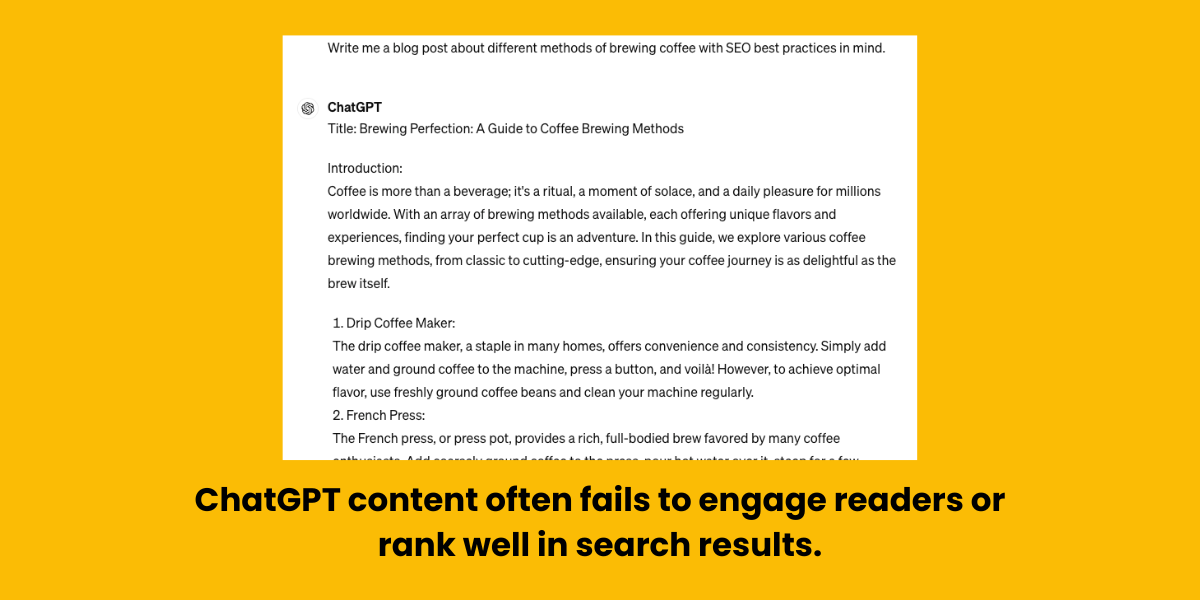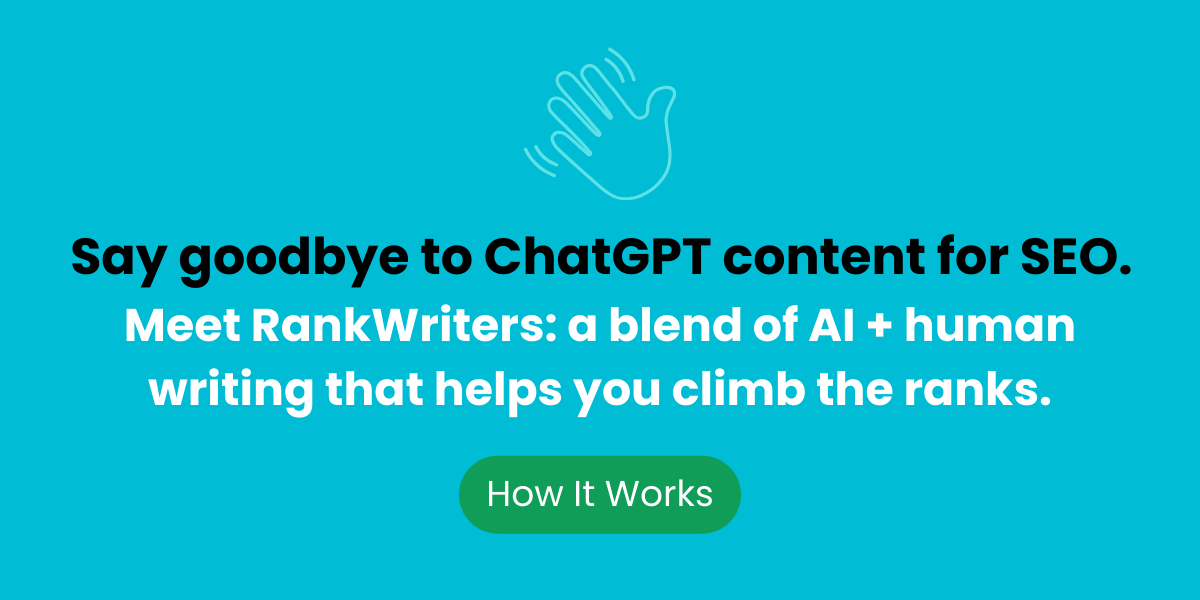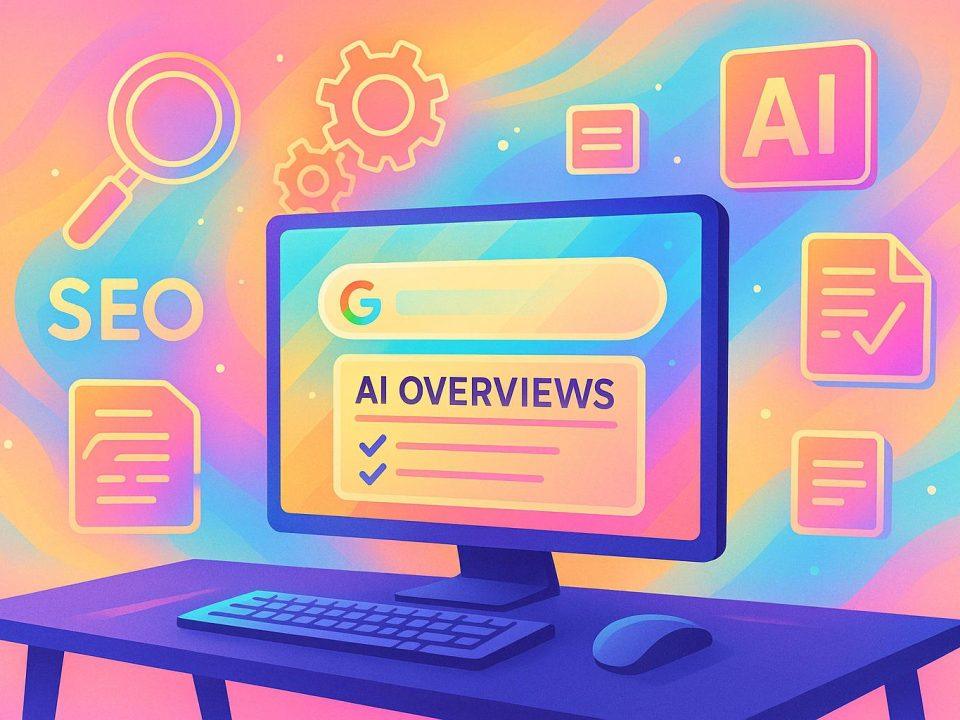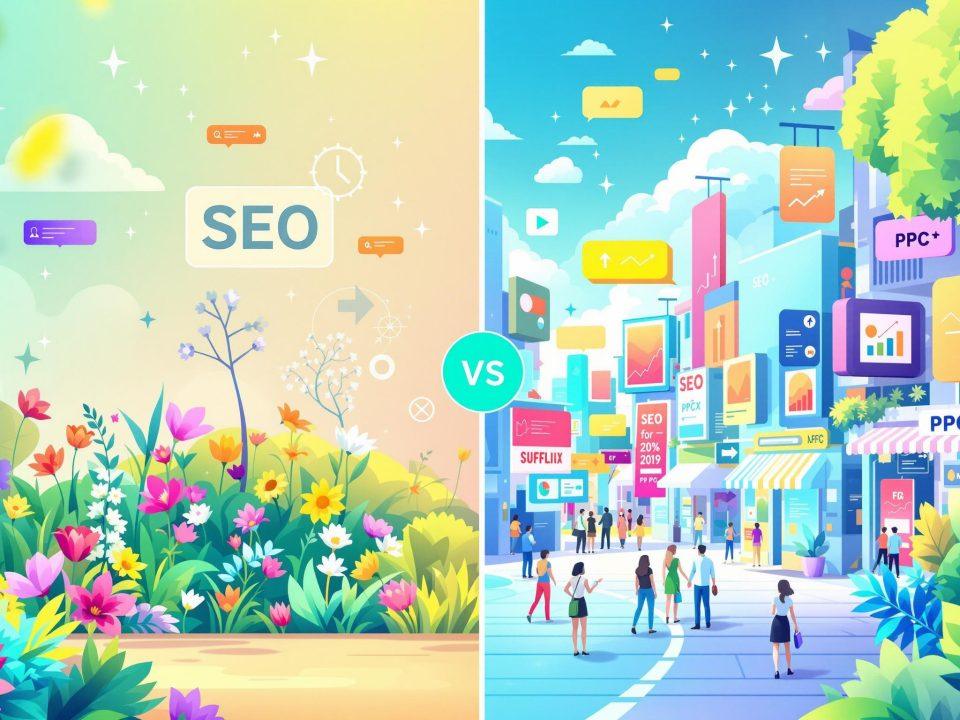Hey there, SEO enthusiast! I bet you’re wondering: Is ChatGPT good for SEO? Well, I’ve got some insights to share that might just blow your mind (or at least make you rethink your content strategy). As an SEO expert who’s been around the block a few times, I’ve seen my fair share of shiny new tools promising to revolutionize the game.
So, is ChatGPT good for SEO or just another overhyped trend? Let’s find out together!
Is ChatGPT Good for SEO? Here’s The Reality
ChatGPT is an AI powerhouse, no doubt. But when it comes to SEO content creation, it’s not the silver bullet some might hope for.
Don’t get me wrong, ChatGPT can be a helpful tool in your SEO arsenal. It’s great for brainstorming content ideas, generating rough outlines, or even suggesting meta descriptions.
But relying solely on ChatGPT to churn out SEO-optimized content is a recipe for disappointment. The truth is, ChatGPT has some significant limitations when it comes to SEO content writing.
Understanding ChatGPT’s Limitations in SEO
First off, ChatGPT’s knowledge base is limited to 2021 data. In the fast-paced world of search engine optimization, that’s practically ancient history.
Google’s algorithms are constantly evolving, and what worked for SEO a year or two ago might not cut it today. Relying on outdated information is a surefire way to tank your SEO strategy.
Plus, ChatGPT lacks the contextual understanding that’s crucial for effective SEO. It might suggest keywords for your blog posts that are technically relevant but completely miss the mark in terms of search intent.
The result? Low-quality, AI-generated content that fails to engage readers or rank well in search results.

Alternative Tools for Enhancing Your SEO Game
So, if ChatGPT isn’t the ultimate solution for SEO content, what is? The key is to use a variety of tools, both AI-powered, like language models, and traditional, like title tags, to inform your content strategy.
Beyond ChatGPT: AI Tools for Keyword Research
When it comes to keyword research, there are AI tools that leave ChatGPT in the dust. Google Trends, for example, provides real-time data on search volume and trending topics.
BuzzSumo is another powerful tool that analyzes content performance across social media and search engines. These insights can help you identify high-value keywords and trending topics in your niche, including the long-tail keywords that will be important for your website content.
Crafting Perfect Posts with AI Editors
Once you’ve nailed down your target keywords, AI-powered editing tools can help ensure your content is top-notch. Grammarly, for instance, goes beyond basic grammar checks to offer suggestions on tone, clarity, and engagement.
Of course, no AI tool can replace human expertise and creativity. But when used strategically, these tools can supercharge your SEO efforts and help you craft unique content that both search engines and readers will love.
Crafting Meta Titles and Descriptions with Precision
Meta titles and descriptions are the first things potential readers see in search results. If they’re not compelling, even the best content can go unclicked.
Optimizing Meta Elements for Search Engines
The key to great meta titles and descriptions is balancing SEO and engagement. You want to include your target keywords, but not at the expense of readability.
ChatGPT can help generate ideas, but it’s up to you to refine them. Make sure your meta elements accurately reflect your content and entice readers to click through.
Keep in mind, meta titles should be around 60 characters, while meta descriptions should be under 160. Any longer and they risk being truncated in search results.
Leveraging Schema Markup for Better SERP Features
Schema markup is a powerful way to enhance your search result listings. By adding this structured data to your site, you can help search engines better understand and display your content.
Multilingual SEO with Hreflang Tags
If your site targets multiple languages or regions, hreflang tags are a must. These HTML attributes tell search engines which version of a page to serve users based on their language or location.
Implementing hreflang tags can be complex, but it’s essential for effective international SEO. Neglecting this step could mean missing out on valuable global traffic.
ChatGPT isn’t a one-stop shop for SEO content creation. It’s great for sparking ideas and drafting meta descriptions but falls short on up-to-date SEO strategies and understanding search intent. Mix AI tools like Google Trends and Grammarly with human creativity to truly ace your SEO game.
Avoiding the Pitfalls of Duplicate Content in SEO
Duplicate content is the silent killer of SEO. It’s a problem that can sneak up on you, slowly eroding your search engine rankings without you even realizing it.
But what exactly is duplicate content? It’s when the same or very similar content appears on multiple pages of your website, or even across different websites. This can happen for a variety of reasons, like having multiple URLs for the same page, or using the same product descriptions across multiple e-commerce sites.
The problem is, when search engines like Google come across duplicate content, they don’t know which version to index and rank. It dilutes the value of your content and can lead to lower rankings across the board.
So how do you avoid falling into the duplicate content trap? The first step is to identify any existing issues. Tools like Semrush’s Site Audit can crawl your site and flag any duplicate content issues.
Once you’ve identified the problem areas, it’s time to fix them. This might mean consolidating similar pages, using 301 redirects, or implementing canonical tags to tell search engines which version of a page is the “master” copy.
It’s also important to be proactive in preventing duplicate content issues moving forward. Make sure each page on your site has unique, valuable content. If you’re an e-commerce site, invest the time in writing original product descriptions rather than using the manufacturer’s default copy.
Duplicate content may seem like a small issue, but it can have a big impact on your SEO. By taking steps to identify and address it, you can keep your site in good standing with search engines and maintain those hard-earned rankings.
Tailoring Content to Your Target Audience’s Needs
Creating content that truly resonates with your target audience is key to SEO success. But it’s a step that’s often overlooked, especially when relying solely on AI tools like ChatGPT.
To really connect with your audience, you need to understand who they are, what they care about, and what challenges they face. This requires research and a human touch.
Start by creating buyer personas – fictional representations of your ideal customers. Give them names, demographics, interests, and pain points. The more detailed, the better.
Then, use this information to guide your content creation. What questions would Sarah the busy mom have about your product? What kind of humor would resonate with Joe the tech-savvy millennial?
You can also use tools like Semrush’s Market Explorer to get insights into your audience’s interests, behaviors, and demographics. Look at what kind of content is resonating with them on social media and other websites in your niche.
The key is to put yourself in your audience’s shoes. What value can you provide them? How can you make their lives easier, better, or more fun?
When you create content with your specific audience in mind, it’s more likely to rank well in search engines. That’s because it will naturally include the keywords and phrases they’re searching for, and provide the solutions they’re looking for.
AI tools can certainly help with the execution, but the strategy and empathy need to come from you. So take the time to really get to know your audience – it will pay off in your digital marketing efforts and beyond.
Conclusion
So, is ChatGPT good for SEO? The answer is… not really. Look at ChatGPT as a helpful buddy in brainstorming sessions for content ideas when you have writer’s block, getting keyword ideas, or writing snappy meta descriptions. Just remember that solely relying on ChatGPT content is limiting your results. To truly succeed with SEO, you need to combine the efficiency of AI with the creativity and expertise of human writers.
Remember, search engines are getting smarter every day, and they can spot low-quality, AI-generated content from a mile away. The key is to use ChatGPT as a starting point for generating content, but always add your own unique insights, experiences, and brand’s tone of voice to the mix.
Use AI content with your own clever ideas to make stuff that stands out on Google and really means something to folks who read it. So go ahead, experiment with ChatGPT, but veru rarely is ChatGPT good for SEO. Never forget the value of authentic, engaging content. That’s the real secret to your success!








